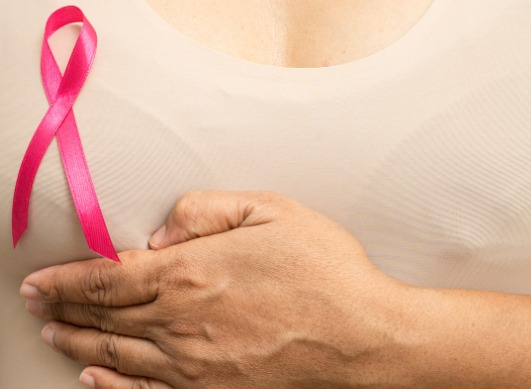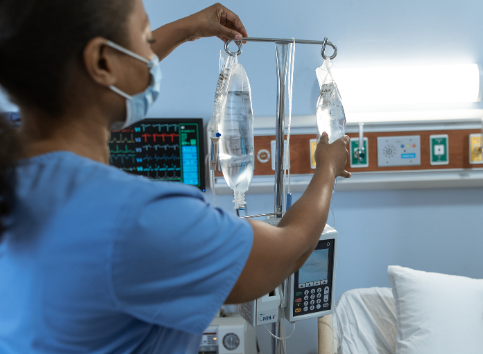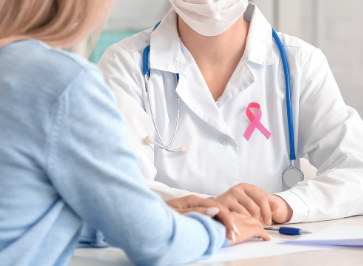- Home
- Forums
- Breast cancer Forum
- Research and useful tips - Breast Cancer
- Managing Fatigue
Patients Breast cancer
Managing Fatigue
- 48 views
- 0 support
- 2 comments
All comments
![]()
maddoglady
Good advisor
![]()
maddoglady
Last activity on 04/01/2023 at 12:00
Joined in 2016
109 comments posted | 29 in the Breast cancer Forum
1 of their responses was helpful to members
Rewards
-
Good Advisor
-
Contributor
-
Committed
-
Explorer
-
Evaluator
I used to feel that it was important to just battle through, however I've discovered that the harder I push the worse I feel. I try to get daily chores, exercising, dog walking etc done in the morning when I feel most active and alert,then if I feel weary later in the day a quick cat nap makes me feel better.
See the signature
Maddoglady!
![]()
Rosemcarthur
![]()
Rosemcarthur
Last activity on 21/02/2021 at 09:44
Joined in 2016
2 comments posted | 1 in the Breast cancer Forum
Rewards
-
Committed
-
Explorer
My energy is better in afternoon I too have take dog out early morning I'm exhausted and out of breath I come back make a drink go back to bed until9 have breakfast go back get up 11 try some housework have a bit lunch take dog then rest again have no one to help on my own then do a bit shopping then have rest up 3 sit watch a bit tv make a bit of dinner I don't have any appetite take dog again. Go to bed 9. Any suggestions.
See the signature
R.mcarthur
Give your opinion
Members are also commenting on...
Articles to discover...

10/10/2023 | Testimonial
Paget's disease of the nipple: "Don't let waiting for a diagnosis deplete your reserves!"
Medication fact sheets - patient opinions...
Subscribe
You wish to be notified of new comments
Your subscription has been taken into account







Margarita_k
Good advisor
Margarita_k
Last activity on 07/10/2020 at 11:39
Joined in 2016
1,195 comments posted | 48 in the Breast cancer Forum
2 of their responses were helpful to members
Rewards
Good Advisor
Contributor
Messenger
Committed
Explorer
Evaluator
Fatigue is hard to describe. You feel like you don't have any energy and are tired all the time. But there's not a specific cause. You haven't been running errands all day, working out, or doing some other strenuous chore. When you're tired from exertion, if you get enough sleep that night, you usually feel better the next day. With fatigue, you feel generally tired all the time and lose interest in family, friends, and things you normally like to do.
Fatigue is the most common side effect of breast cancer treatment. Some doctors estimate that 9 out of 10 people experience fatigue at some point during treatment. Fatigue from treatment can appear suddenly, at any time, and can be overwhelming. Rest doesn't ease fatigue and it can last for months after treatment ends.
Ways to Manage Fatigue
If you think you're experiencing fatigue, talk to your doctor. If possible, give your doctor specific information about your fatigue. Instead of saying, "I'm tired all the time," give an example such as, "I get tired when I walk up the five stairs to my office."
Because there are so many causes of fatigue, there's no one medicine that can relieve fatigue. Together, you and your doctor can figure out ways to reduce your fatigue. The following tips may help you manage your fatigue:
1. Complementary and Holistic Medicine
Some complementary and holistic medicine techniques have been shown to reduce fatigue, including: acupuncture, massage, meditation, Reiki tai chi, yoga. Research and anecdotal evidence shows that lifestyle changes, such as exercising more, relieving stress, and eating a healthy, well-balanced diet, can help ease fatigue.
2. Exercise for Fatigue
Get moving! The American Cancer Society recommends that women who have been diagnosed with breast cancer exercise regularly (about 4 hours per week) to improve their quality of life and physical fitness.
Start slowly, perhaps walking for 15 minutes a day, and then gradually increase the amount of time you spend exercising. You may need months to work your way up to 4 hours a week, but that's fine. Even during treatment, taking short, slow walks up and down the street or around the block can be very helpful. Then you can progress to gentle exercise, such as yoga or tai chi.
If you're not sure how to start exercising, you might want to visit a gym or make an appointment with a personal trainer to learn about different types of exercise. Make sure you tell the trainer about your health situation. Some people prefer exercising in their homes using videotapes or DVDs. Other people find great joy in gardening or yard work, as opposed to organized moderate exercise. Walking with a friend is a great way to socialize AND get the benefits of exercise.
3. Eating to Manage Fatigue
You can fight fatigue by eating enough and trying to get all the nutrients you need. Create a healthy diet that is full of fruits and vegetables and whole grains. Make sure you eat foods that help you meet any new nutritional goals you and your doctors have set.
If you're fighting fatigue, it's important to make sure you're getting enough protein as well as total calories. These amounts will be different for different people. Together, you and your registered dietitian and your doctor can come up with an eating plan that works for you.
Here are some general guidelines for how much protein and calories you need:
- If your weight is staying about the same during treatment, you need 15 calories a day for each pound you weigh. So if you weigh 160 pounds, you need 2,400 calories a day to maintain your weight.
- If you've lost weight during treatment, add another 500 calories to your daily diet. So if you weighed 130 pounds and lost weight during treatment, you need 1,950 plus 500, which equals 2,450 calories a day.
- Protein helps heal and rebuild tissues. During treatment, eat half a gram of protein for each pound you weigh. So if you weigh 160 pounds, try to get 80 grams of protein in your diet each day.
You should also make sure to get enough vitamins and minerals. Getting these nutrients from foods rather than from supplements is best. But if you aren't eating very much because of treatment side effects, ask your doctor about taking a multivitamin.
Also make sure you're drinking enough liquids, especially water. If you have side effects such as vomiting and diarrhea, you need to drink more liquids than normal. Besides water, good choices are fruit juice, milk, and broth. Caffeinated beverages (coffee, tea, soda pop) actually can dehydrate you, so stick to other choices.
4. Medications to Help Fatigue
No magic pill can cure your fatigue, but there are some medical treatments that may help. If your doctor doesn't respond well to your concern about these problems, find one who will. You must assert yourself if you know you've reached your limit and need help. The best doctor is one who appreciates the problem, is willing to listen to your complaints carefully, who knows enough about the problem to do an evaluation, and who is willing to treat the problem as part of cancer care. Be specific when you talk about your fatigue, such as, "I get short of breath when I walk the five stairs to my office."
5. Other Tips to Manage Fatigue
- Try a catnap. Beware of long naps, though. You might end up wide awake in the middle of the night. Daytime naps should be no more than 30 minutes so you won't fall into deep sleep. (Waking up groggy usually means you've napped too long.) If you find you need a nap every day, take it at a regularly scheduled time, but try not to nap after 2 p.m.
- Keep to a routine. Go to bed at the same time each night and get up at the same time each morning. Don't stay in bed after you wake up. Make sure you get enough sleep and that you sleep for the same amount of time each night.
- Keep a diary of how you feel each day. Keep a daily diary of your fatigue to identify when it's the worst and when it's least troubling.
- Plan activities during the times you have the most energy. Schedule rest periods when your energy is lowest. Make sure you balance each activity with a rest period if you need it.
- Organize each day. Figure out what you have to do and when you need to do it. Pacing yourself helps to conserve your energy.
- Ask for help. Accept the offers of help and goodwill from family and friends. If no one has offered to help and everyone seems too busy, ask for what you need — even if asking is one of the hardest things for you to do. Get help with little things: taking out the trash, folding the laundry, or paying bills. Keep a list of things you need done so when people ask what they can do, you can give them the list.
- Join a support group. Sharing your feelings with others can ease the burden of your fatigue and give you more ideas about how you can cope with the condition. Your nurse or doctor can put you in touch with a support group in your area. For an online support group, visit the Breastcancer.org Discussion Boards.
- Keep lists and make notes to remind you of important things if your memory and concentration are affected by fatigue. Also, give yourself more time for activities that take concentration.
- Be kind to yourself. If you're fatigued, don't beat yourself up because you can't do what you're "supposed" to do. That browbeating takes energy you can't afford to waste and can add to depression. Do nice things for yourself and give yourself permission to rest and recover, for as long as it takes.
Source: breastcancer.org
____________________________________
And how do you manage your fatigue?